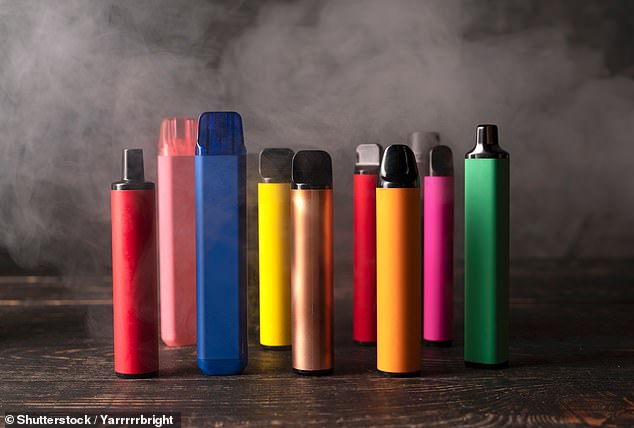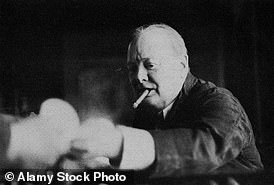MPs will this week demand that shops selling vape pens must be licensed as alcohol outlets to curb the epidemic of childhood nicotine addiction.
This comes as research shows that more than three-quarters of the public support tightening the law so that the devices cannot be sold in toy stores, sweet shops and other places aimed at young people.
Even the tobacco industry, which makes much of its profits from vaporizers, supports stricter regulation to reframe them as legitimate smoking cessation aids rather than public nuisances.
The Tobacco and E-Cigarettes Bill will be debated in the House of Commons tomorrow, when a group of MPs will call for tighter restrictions on brightly colored and candy-flavoured nicotine devices.
They are sold in many sweet shops and, in one extraordinary example, in a shop in Lincolnshire called Grimsby Toys & Vape where they are sold alongside teddy bears.
The Tobacco and E-Cigarettes Bill will be debated in the House of Commons tomorrow, when a group of MPs will call for tighter restrictions on brightly colored and candy-flavoured nicotine devices. (File image)
Conservative MP Caroline Johnson, a pediatric consultant, said: “People are very concerned about the number of children becoming addicted to vaping.” Currently it far exceeds the number of people who would have started smoking.
‘It is necessary to strengthen the market for the sale of vaporizers and other nicotine products. If people needed a license to sell vaporizers, it would be easier to enforce the law, because they could immediately lose their license if they sold them to children.’
He said alcohol and tobacco licenses should be “linked” so that if a store lost its license to sell one type of product to children, it would lose its license to sell both, which could be catastrophic for a small business.
“I would also like to see vaping in public places limited, as is smoking,” he added.
“People may say it’s a ‘nanny state,’ but most people don’t want to live in a fog that smells like cotton candy and blueberries.”
In a nationwide survey, think tank Britain in Focus found that most people are concerned about the number of young people vaping and are surprised shops do not need a license to sell them.
Seven in ten believe the Government has not done enough to tackle underage vaping, and 79 per cent believe new smoking legislation should introduce licensing for the sale of vaporisers.
The tobacco and vaping bill seeks to ban anyone born after 2009 from purchasing cigarettes and prevent candy-flavored vapes from being marketed to children.
Health Secretary Victoria Atkins rejected accusations that this was an example of “nanny state” legislation. She said: ‘It’s about the Conservative principle of looking after future generations.
‘We want to free future generations from nicotine addiction. Nobody is glad they started smoking; everyone is sorry.’
According to the Department of Health, the number of children using vaporizers has tripled in the last three years.



